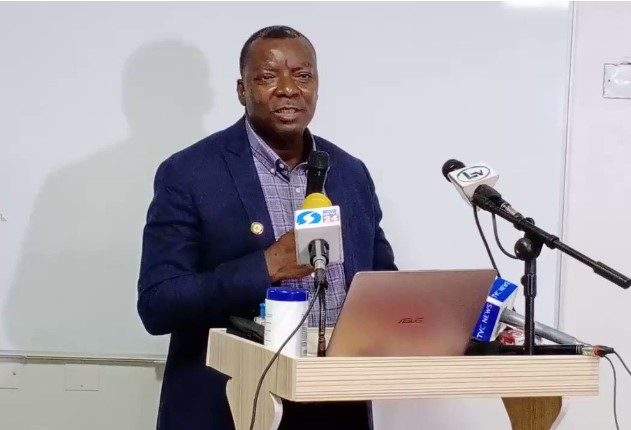In a stark revelation, Dr. Eniayewun Ademuyiwa, the Permanent Secretary of the Lagos State Health Service Commission, has raised an alarm about the dire state of government-owned hospitals. He expressed deep concern over the mass exodus of healthcare workers seeking better opportunities abroad, a phenomenon colloquially known as “japa”.
Dr. Ademuyiwa disclosed that the acute shortage of manpower in federal facilities has resulted in a surge of patients seeking care in state hospitals across Lagos. This distressing trend has been exacerbated by the relocation of over 1,400 members of the Nigerian Association of Resident Doctors to foreign countries in pursuit of improved prospects.
Furthermore, the House of Representatives Committee on Health disclosed that the Lagos University Teaching Hospital had been compelled to close down several wards, comprising approximately 150 beds, due to a severe scarcity of health personnel resulting from the departure of numerous doctors.
Addressing healthcare executives at a strategic leadership and financial management retreat in Lekki, Lagos, the Permanent Secretary underscored the persistent challenges faced by hospitals in delivering quality services to patients, especially in the wake of the mass emigration of younger healthcare professionals.
Dr. Ademuyiwa emphasized the need for hospitals to adapt to this grave reality, with many established strategies and initiatives faltering in the face of a rapidly depleting workforce. He expressed apprehension that despite the government’s efforts to equip and train healthcare providers, the situation continues to worsen due to the relentless departure of doctors.
Amid the escalating crisis, Dr. Ademuyiwa urged healthcare executives to proactively address the burgeoning influx of patients, asserting that the volume of hospital admissions continues to escalate. He raised thought-provoking questions about the reasons behind this surge, prompting reflection on whether it signifies the excellence of healthcare services or the lack of alternative options for patients.
Highlighting the urgent need for resilience and proactive problem-solving within hospital management, Dr. Ademuyiwa stressed the criticality of immediate and effective solutions. He underscored the imperative for hospitals to operate seamlessly, with no room for weaknesses or delays in addressing critical issues, emphasizing the necessity for a continuous state of preparedness.
In a bid to enhance the capacity of healthcare workers, particularly the healthcare executives, the Chairman of the Health Service Commission, Dr. Atinuke Onayiga, affirmed that the retreat aimed to equip them with the necessary skills to navigate the increasingly challenging healthcare landscape.
The revelations from Dr. Ademuyiwa and the subsequent calls for proactive measures underscore a growing crisis in the healthcare sector in Lagos, with grave implications for the delivery of essential medical services to the populace. As the global community grapples with a burgeoning healthcare workforce shortage, the plight of Lagos state’s hospitals offers a poignant reflection of a broader, international predicament.
